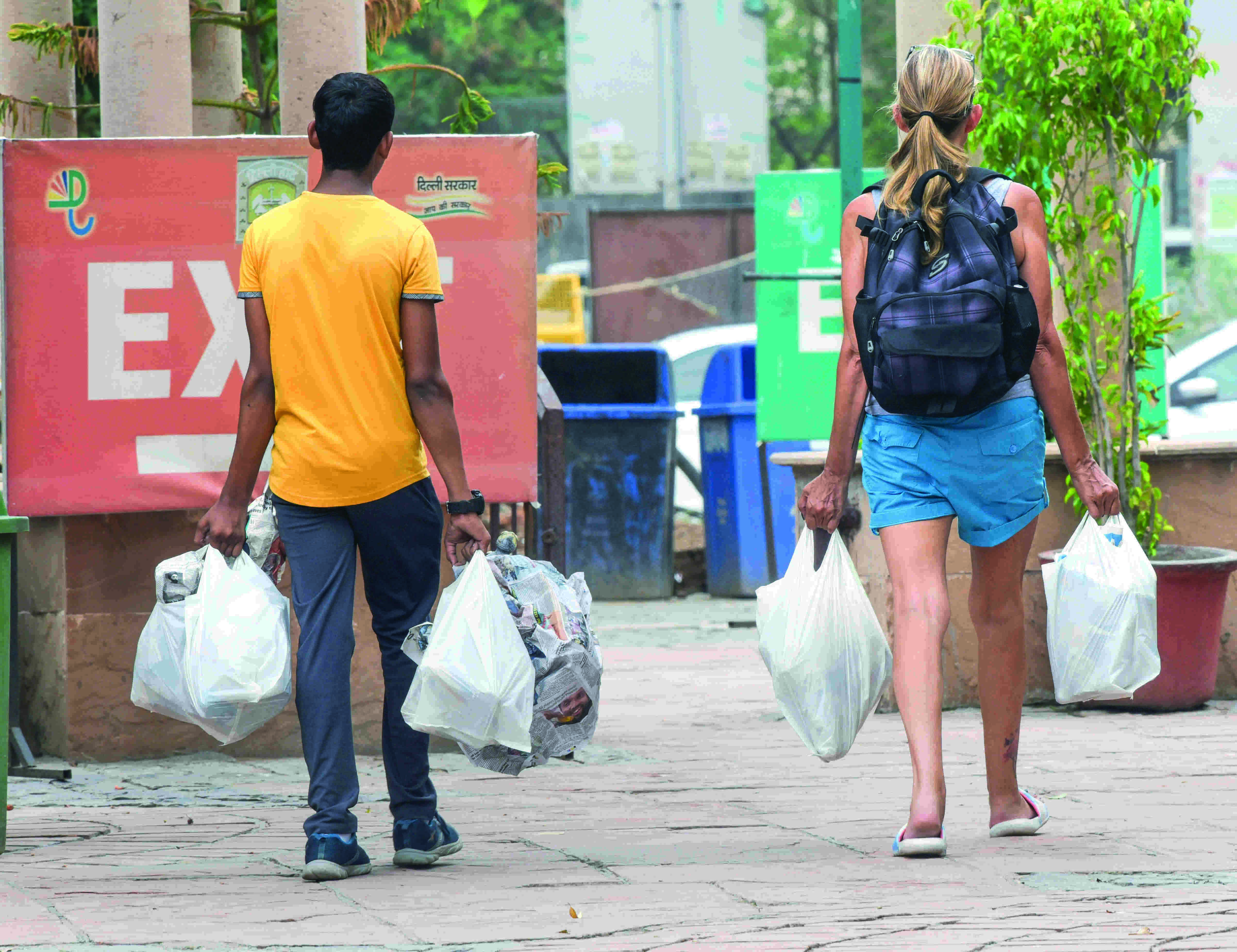SUP ban impacts small businesses, vendors & hawkers

New Delhi: The nationwide single-use-plastic (SUP) ban which has been in force since July 1 has impacted the small businesses, vendors and hawkers in the Capital, creating a sense of confusion among the stakeholders of the informal economy.
Md. Shehnavaj, who runs a stall selling coconut water in a DDA market in Mayur Vihar is apprehensive about shifting to paper straws as it is much
costlier than the plastic ones and it will force him to raise the cost of his product. He said, "This will cost me my consumers. And to be honest, although people are aware of the ban they are unhappy with the impact
it can have on their pockets."
Earbuds made up of plastic, plastic sticks used for balloons, flags, candy, ice-creams, thermocol, plastic plates, cups, glasses, forks, spoons are some of the items that are included in the list of banned items. As per a report released by the Environment Department in 2020, 1,060 tonnes of plastic is generated in Delhi on a daily basis, which is around 10.10% of the total solid municipal waste. Of this, 587 tonnes of waste is single use plastic.
Wilma Rodrigues, founder of the non-profit organisation 'Saahas' which works in the field of waste management in a brief chat with Millennium Post said that the brunt of the extra costs on the products because of SUP alternatives is something that should be pushed to the consumers. She said, "Inflation is already taking a toll on small businesses and it will be unfair and sad if they have to face the extra costs." She further commented that the ban is welcome and now it is all about the implementation and coordination among producers and consumers of SUP. She said, "A commitment needs to come from the government and the consumers need to be sensitive."
Shops in the Bengali Market near Mandi House have completely phased out the use of SUPs. It is the sense of awareness among the consumers and the enforcement measures by the government that has prompted them to switch to alternatives. Most of the markets in the NDMC area have witnessed this change. But this change is limited to posh upper class markets in the city. The reality outside the NDMC area is a contrasting one with many claiming lack of awareness and information around the subject as a driving factor.
Satish Sinha, associate director of the think tank 'Toxic Link' said that the ban this is slightly different in nature as this time it is the supply side that is being controlled, "You cannot manufacture or sell." He further added that the impact of plastic on the environment is catastrophic and in order to fight this impact a behavioral change is required among the people.
On the contrary, the producers of alternatives to SUP expect the government to reduce the custom duties on the biodegradable products. Vidur Mayor, founder, For Earth's Sake organisation said that startups like his which are producing alternatives to SUP need support from the government in terms of reducing the input cost. He said, "Right now the GST on plastic is between 5%-10% and the import cost is 20%. But for some sustainable items the import cost is 43%. So if the government is able to reduce all of that, we will be in a better position to provide more solutions."
Around 1,00,000 MSME who deal in the production of SUPs will be impacted by this
ban and 89,00 small businesses employing about 1 million people will be badly hit, said Vinod Kumar, president of India
SME forum in an interview to 'The Mint'.



